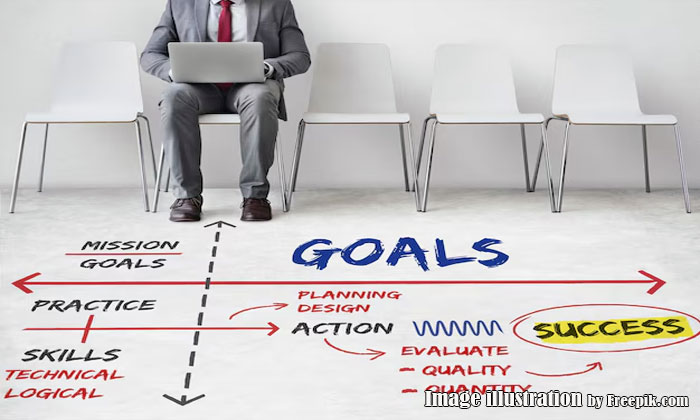
Entering your 20s is a transformative time—an age of self-discovery, exploration, and significant change. Many young adults are balancing their education, figuring out their identity, and starting their professional lives. Amid all this, career planning is crucial for long-term success and fulfillment. While it may seem like a distant concern, taking the time to plan your career path in your 20s can set the foundation for your future achievements and personal growth. This article explores the importance of career planning during this formative decade and offers strategies for self-development that will ensure a brighter future.
Why Career Planning in Your 20s Matters
The first decade of adulthood is often a time of experimentation, learning, and transition. This is why career planning in your 20s may seem intimidating or unnecessary, especially when the future feels uncertain. However, making thoughtful decisions about your career early on can provide you with a sense of direction, structure, and motivation. It’s an opportunity to lay a strong foundation and maximize the potential of your professional journey.
1. Helps Define Your Goals Early
Career planning is about more than just finding a job—it’s about identifying what you want out of life and aligning your work with your personal values. By starting to think about your career early, you give yourself the chance to reflect on your strengths, passions, and long-term aspirations. This reflection can help you set clear goals and focus on developing the skills and experience necessary to achieve them.
For instance, if you dream of becoming an entrepreneur or leader in your field, mapping out steps toward this goal in your 20s—such as learning about management, marketing, or networking—will help you feel prepared for those roles. By understanding the direction you want to go, you avoid spending years drifting aimlessly from one job to the next, which could lead to dissatisfaction and burnout.
2. Provides a Sense of Direction and Focus
With so many career options and paths available, it’s easy to feel overwhelmed. A well-thought-out career plan helps narrow your focus. It enables you to make strategic decisions about where to invest your time, energy, and resources. By setting short-term and long-term career objectives, you can prioritize opportunities that align with your goals and avoid distractions that don’t contribute to your desired outcome.
In your 20s, the opportunities for growth are endless—internships, graduate school, job offers, freelance work, and more. By having a clear plan, you can evaluate which of these options are the most beneficial for your career development. Having a focused mindset also builds confidence, as you will feel more in control of your future.
3. Builds a Strong Professional Network
Career planning involves more than just identifying what skills and experiences you need; it’s also about creating relationships with people who can support your growth. Your 20s are an ideal time to start building your professional network, as relationships formed during this time can play a vital role throughout your career.
Networking opportunities such as internships, mentorships, conferences, and social events are abundant in your 20s. Being proactive about forming these relationships early will help you stay informed about industry trends, gain valuable advice, and open doors to new opportunities. A well-developed network of contacts can make all the difference when it comes to landing the right job or advancing within your current field.
Strategies for Effective Career Planning in Your 20s
Now that we understand the importance of career planning in your 20s, it’s time to look at specific strategies to help you get started and stay on track.
1. Self-Assessment: Understand Your Strengths and Interests
Before you can plan your career, you must first understand yourself. Take time to assess your skills, strengths, and interests. What activities make you feel energized and motivated? What are your natural talents? Whether through self-reflection, personality assessments (like the Myers-Briggs Type Indicator), or conversations with mentors, this process can reveal important insights into your career preferences.
Additionally, think about what kind of work environment suits you. Do you thrive in collaborative, fast-paced settings, or do you prefer independent, structured tasks? Knowing the answers to these questions will help you identify the right job roles and career paths.
2. Set Short-Term and Long-Term Goals
Career planning is a marathon, not a sprint. Establish clear short-term and long-term goals that will guide your actions and decisions. Short-term goals can include building specific skills, taking on internships, or gaining certification in your chosen field. Long-term goals may be focused on climbing the corporate ladder, starting your own business, or becoming an expert in a specialized area.
As you work toward these goals, make sure to evaluate and adjust them periodically. Life is unpredictable, and career plans may change based on new opportunities or shifts in your personal life. Flexibility and adaptability are key components of effective career planning.
3. Invest in Personal and Professional Development
In today’s competitive job market, continuous self-development is essential. Invest in yourself by acquiring new skills and experiences that enhance your qualifications. This could involve pursuing formal education, attending workshops, gaining certifications, or volunteering in a field related to your career interests.
Another crucial aspect of self-development is emotional intelligence (EQ). Building a high EQ helps you navigate workplace dynamics, manage stress, and build stronger relationships with colleagues. In addition, leadership skills, time management, and effective communication are all transferable competencies that can enhance your career trajectory.
4. Seek Out Mentorship
Mentorship is a powerful tool for career development. Seek out mentors who can provide guidance, insight, and support. These individuals may be experienced professionals in your industry or others who have valuable knowledge to share. A mentor can help you make informed decisions, avoid common pitfalls, and introduce you to career-building opportunities.
Mentorship also provides an opportunity for growth outside of the traditional work environment. Many successful professionals have benefited from having someone to turn to for advice, especially in the face of career transitions, challenges, or big decisions.
Also read other self development articles on Destyless:
The Long-Term Benefits of Career Planning in Your 20s
When you engage in career planning during your 20s, you’re investing in a future of purpose and fulfillment. The benefits of starting early are numerous, from having a clear sense of direction to avoiding career drift and burnout. Additionally, early planning provides the time and flexibility to try new things, pivot when necessary, and adjust your path as you discover more about yourself.
1. Increased Job Satisfaction
Career planning allows you to align your job with your values and passions. When you are intentional about your career development, you’re more likely to choose positions that bring you satisfaction and fulfillment. Knowing that your work aligns with your personal goals creates a sense of purpose, which leads to greater job satisfaction and overall happiness.
2. Greater Financial Stability
Career planning also offers a pathway to financial security. By strategically choosing roles that offer opportunities for growth, you increase your earning potential over time. Starting with an intentional plan allows you to build your career steadily, making financial goals such as saving for the future or purchasing property more achievable.
3. Enhanced Work-Life Balance
Effective career planning includes a clear understanding of what you need for a healthy work-life balance. Early planning enables you to identify job opportunities that not only provide financial stability but also offer flexibility, work-from-home options, or opportunities for growth without sacrificing personal time. This balance contributes to both professional and personal happiness in the long run.
Conclusion
Your 20s are a crucial time for self-development, and career planning is one of the most valuable investments you can make for your future. By setting goals, building skills, and forming a strong professional network, you can ensure that you’re not only prepared for the challenges ahead but also well on your way to achieving success and fulfillment in your chosen career. Embrace this time to plan, grow, and evolve into the professional you aspire to be.






